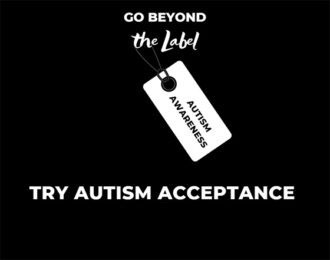What to know about Autism Discrimination in the Workplace

Medically reviewed by Nicole Washington, DO, MPH — Written by Zia Sherrell, MPH Aug 24, 2021, Updated March 9, 2022, for Medical News Today – Maskot/Getty Images
Awareness of autism and its symptoms has grown in the past decade. However, many individuals still face autism discrimination in the workplace.
Autism, also called autism spectrum disorder (ASD), may mean an individual experiences social awkwardness, difficulty communicating, or difficulties understanding people’s emotions and points of view, to name just a few symptoms.
Legally, employers in the United States cannot discriminate against an individual because they have a disability. As per this law, employers cannot refuse to hire qualified, capable job candidates because they have autism.
That said, for individuals with autism, the workplace can still be challenging to navigate. Employers must understand how to treat employees with autism and accommodate them and their needs.
Keep reading to learn more about autism discrimination in the workplace, including the rights of autistic people, some examples of reasonable adjustments employees can make, and some tips on how to deal with autism discrimination at work.
What is autism discrimination?
According to the U.S. Equal Employment Opportunity Commission (EEOC), discrimination means treating someone differently or less favorably for a specific reason, such as a disability.
Discrimination can take place anywhere, including in school, public areas, or the workplace. The EEOC protects against discrimination, including autism discrimination in the workplace.
ASD is a developmental condition that can affect a person’s communication, behavior, and interactions with others. According to the Centers for Disease Control and Prevention (CDC), doctors in the U.S. diagnose around 1 in 54 children with ASD. ASD is more than four times as common in boys than girls.
Although around 31% of individuals with ASD have intellectual disabilities, approximately 46% have average or above-average intelligence, with IQs above 85. Autistic people can have a range of strengths and abilities, such as logical thinking, and memorizing and learning new information quickly.
Working with someone with autism can be both an enriching and beneficial experience for employers, providing they address and overcome potential challenges, and make the correct adjustment needed for autistic people to be able to work comfortably.
Autism statistics
ASD is a lifelong condition that affects approximately 2.21% of adults in the U.S. across racial, ethnic, and socioeconomic groups. Individuals with ASD may face stigma and discrimination in the workplace, as their impaired social skills affect how others view them.
People with ASD generally experience high rates of unemployment or underemployment. This could be due to several issues, including employers reacting negatively to the behavioral, social, and communication traits common in those with ASD. In a 2012 review of studies, the authors noted that after individuals with ASD left school, only 6% had competitive jobs.
In a 2014 review, the authors noted an employment rate of 18% among autistic adults in a United Kingdom, where one study took place, though this was a slightly older study. However, a study that took place in Canada indicated that 56% of people with ASD found employment.
It is challenging to find precise statistics on the number of autistic people who have faced discrimination in the workplace because of the potential for underreporting.
A 2008 study analyzed complaints filed with the EEOC by autistic individuals from 1992 to 2003. Researchers found just 98 out of 328,738 complaints, or 0.03%. This low number could be due to individuals being unaware of their rights or feeling unable to act upon them.
What are the effects of autism?
ASD is a complex disorder with various effects. It can affect an individual’s social interaction, communication, and behavior. However, the effects of this lifelong condition differ considerably between individuals, from mild to severe.
The effects of ASD fall into two categories.
- Social interaction and communication problems: People may have difficulty with everyday conversations and cannot share emotions. They may find it challenging to respond to typical social cues such as eye contact and facial expressions and have difficulties developing and understanding relationships with others.
- Behavioral problems: Individuals with ASD may demonstrate restricted or repetitive behavioral patterns. For example, hand flapping, using strange speech patterns, needing a predictable routine, becoming intensely focused on specific activities, and experiencing sensory overload.
Autistic people may face discrimination in the workplace because of their behavior which people may view as unusual. Discrimination can have adverse effects on their self-esteem, quality of life, and physical health. It can even lead to post-traumatic stress disorder (PTSD).
Legality and rights
The Americans with Disability Act (ADA) is a federal U.S. law that provides civil rights protections to individuals with disabilities. ADA classifies autism as a disability.
The ADA guarantees autistic people equal employment opportunities, government services, access to education, transport, and more.
If a business has 15 or more employees, the ADA states that it cannot discriminate against autistic people. This discrimination ruling applies to every aspect of employment, from applying, to hiring, to training, and beyond.
Under ADA guidelines, employers must provide reasonable adjustments to autistic employees. This means that employers must support autistic people by making changes in the work environment that allows the autistic person to enjoy equal employment opportunities. For example, by providing equipment and resources they need to do their job effectively. However, if the accommodations are complex and costly, employees need not provide them.
The other statute that prevents discrimination against autistic individuals is Section 503 of the Rehabilitation Act of 1973. This law prevents discrimination by federal contractors or subcontractors with contracts over $10,000.
Reasonable adjustments that employers can make for autistic people
If an employer makes reasonable adjustments for individuals with ASD, it allows them to participate fully in their job. These reasonable adjustments depend on the individual and the challenges they face.
Here are some examples of reasonable adjustments:
- Allowing an individual to take short breaks throughout the day when they lose focus or become distracted. To accommodate this, the employer could increase the core hours.
- Providing one task at a time rather than expecting the individual to multitask.
- Offering a quiet working place or a “do not disturb” sign that individuals can use when they require intense concentration.
- Minimizing noise, lights, and visual disturbances by using desk partitions, low lights, and providing noise-canceling headphones.
- Permitting individuals to work from home or change their working hours to quiet times to reduce distraction and stress.
- Providing clear and specific information and instructions on completing work tasks to avoid any ambiguity or confusion. Give written rather than verbal instructions. Consider keeping operating instructions next to equipment such as photocopiers, printers, or other devices.
- Training work colleagues about the challenges of ASD and how they can help the individual communicate and navigate to their employment.
How to deal with autism discrimination
The law prevents employers, schools, colleges, or individuals from discriminating against someone because they have autism. Autistic people must have equal employment opportunities, government services, transportation, public accommodations, and commercial facilities.
If an autistic person experiences discrimination, there are steps they can take to address the situation. These actions vary according to the type of discrimination, but may include:
- talking with the employer or individual involved, as they may not realize they are discriminating against the autistic person
- filing an employment discrimination complaint with the EEOC or the state fair employment practices agency (if individuals believe they have experienced a violation of rights, they may have a deadline to file depending on the state, which could be as short as 180 days)
- contacting a lawyer and inquire about filing a lawsuit
Seeking help and guidance
Various social services programs and other resources can help individuals with ASD who have experienced autism discrimination in the workplace. These may include:
- local health departments and healthcare professionals
- autism advocacy groups, such as the Autism Society, also have affiliates who can help people in their local area
- the American Civil Liberties Union, which can help people act against discrimination in their workplace
- the EEOC, which can help people file a charge against an employer
Summary
Autistic people may face discrimination in the workplace because of their behavior and communication difficulties.
However, legally, employers in the U.S. cannot discriminate against people because they have a disability. The workplace may present challenges to those with autism, and employers must provide reasonable adjustments, so autistic individuals have equal work opportunities.
Autism must not present a barrier to employment. Every autistic person has legal rights to support them in a fair workplace, free from discrimination.
While facing discrimination may be challenging for autistic people, they should not have to stand for it. There are several organizations they can turn to for guidance and support.





